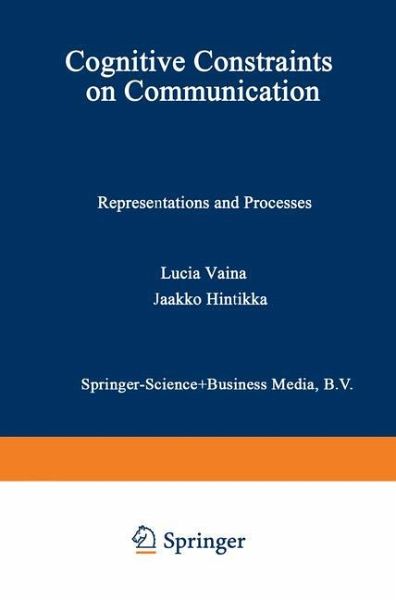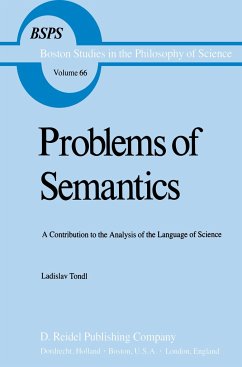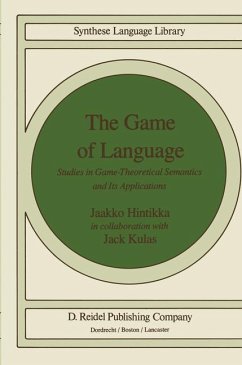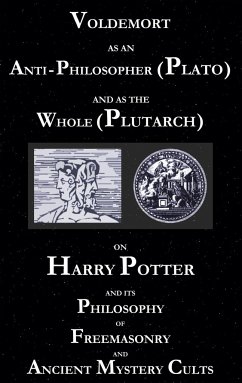
Cognitive Constraints on Communication
Representations and Processes
Herausgegeben von Vaina, L.M.; Hintikka, Jaakko

PAYBACK Punkte
77 °P sammeln!
Communication is one of the most challenging human phenomena, and the same is true of its paradigmatic verbal realization as a dialogue. Not only is communication crucial for virtually all interpersonal relations; dialogue is often seen as offering us also a paradigm for important intra-individual processes. The best known example is undoubtedly the idea of concep tualizing thinking as an internal dialogue, "inward dialogue carried on by the mind within itself without spoken sound", as Plato called it in the Sophist. At first, the study of communication seems to be too vaguely defmed to have m...
Communication is one of the most challenging human phenomena, and the same is true of its paradigmatic verbal realization as a dialogue. Not only is communication crucial for virtually all interpersonal relations; dialogue is often seen as offering us also a paradigm for important intra-individual processes. The best known example is undoubtedly the idea of concep tualizing thinking as an internal dialogue, "inward dialogue carried on by the mind within itself without spoken sound", as Plato called it in the Sophist. At first, the study of communication seems to be too vaguely defmed to have much promise. It is up to us, so to speak, to decide what to say and how to say it. However, on eloser scrutiny, the process of communication is seen to be subject to various subtle constraints. They are due inter alia to the nature of the parties of the communicative act, and most importantly, to the properties of the language or other method of representation presupposed in that particuIar act of communication. It is therefore not surprising that in the study of communication as a cognitive process the critical issues revolve around the nature of the representations and the nature of the computations that create, maintain and interpret these representations. The term "repre sentation" as used here indicates a particular way of specifying information about a given subject.












